12 Books for Anti-Racist K-12 Education
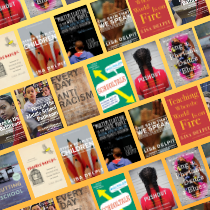
The New Press has long championed Black and Brown authors, and we remain dedicated to providing resources for people seeking to educate themselves on systems of inequality and violence. Amidst the nationwide outrage surrounding police brutality and racial injustice, the book world has been putting out a number of anti-racist reading lists. This particular reading list is designed for parents, principals, and teachers of K-12 students as well as anyone working with children, emphasizing the racist and classist structures embedded in schooling and the work that needs to be done to dismantle them. We publish these and other progressive education books in hopes of creating a new generation of anti-racist schools and educators, and liberating students to flourish in a safer, better world.
* * * * * * *
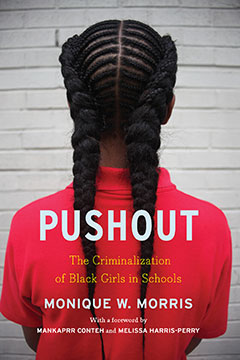
Pushout: The Criminalization of Black Girls in Schools
by Monique W. Morris
In a work that Kimberlé Crenshaw calls “essential reading for all who believe that Black lives matter,” Monique W. Morris chronicles the experiences of Black girls across the country whose intricate lives are misunderstood, highly judged, and degraded by the very institutions charged with helping them flourish.
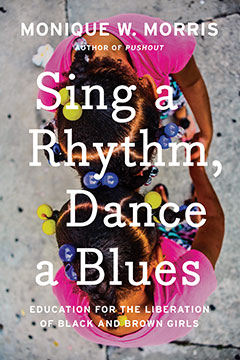
Sing a Rhythm, Dance a Blues: Education for the Liberation of Black and Brown Girls
By Monique W. Morris
In her follow-up to Pushout, Monique W. Morris invokes the spirit of the blues to articulate a radically healing and empowering pedagogy for Black and Brown girls. The result is this radiant manifesto—a guide to moving away from punishment, trauma, and discrimination toward safety, justice, and genuine community in our schools.
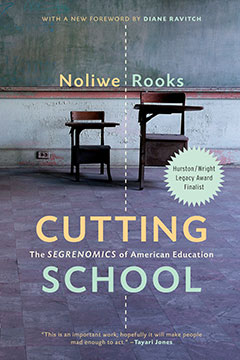
Cutting School: The Segrenomics of American Education
By Noliwe Rooks
Hailed as “a bold and groundbreaking work” by Danny Glover, Cutting School deftly traces the financing of segregated education in America, from Reconstruction through Brown v. Board of Education up to the current controversies around school choice, teacher quality, the school-to-prison pipeline, and more.
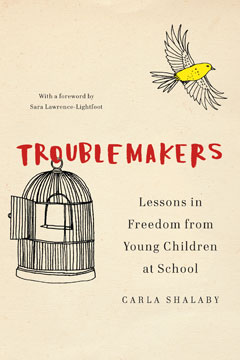
Troublemakers: Lessons in Freedom from Young Children at School
By Carla Shalaby
In this dazzling debut, Carla Shalaby, a former elementary school teacher, explores the everyday lives of four young “troublemakers,” challenging the ways we identify and understand so-called problem children. Both urgent and timely, this paradigm-shifting book challenges our typical expectations for young children and with principled affection reveals how these demands—despite good intentions—work to undermine the pursuit of a free and just society.
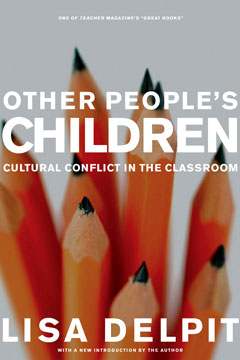
Other People’s Children: Cultural Conflict in the Classroom
By Lisa Delpit
In a radical analysis of contemporary classrooms, MacArthur Award-winning author Lisa Delpit develops ideas about ways teachers can be better “cultural transmitters” in the classroom, where prejudice, stereotypes, and cultural assumptions breed ineffective education.
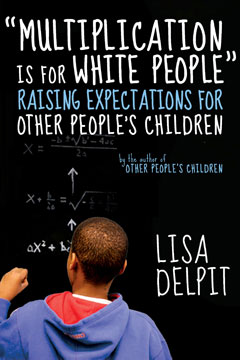
“Multiplication Is for White People”: Raising Expectations for Other People’s Children
By Lisa Delpit
In her second book, Delpit presents a striking picture of the elements of contemporary public education that conspire against the prospects for poor children of color, creating a persistent disparity in achievement. With telling classroom anecdotes and informed time spent at dozens of schools across the country, Delpit outlines an inspiring blueprint for raising expectations and closing the achievement gap.
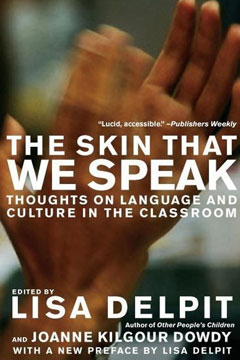
The Skin That We Speak: Thoughts on Language and Culture in the Classroom
Edited by Lisa Delpit and Joanne Kilgour Dowdy
The Skin That We Speak presents a thoughtful exploration of the relationship between language and power in the classroom, from an array of acclaimed authors. As children are frequently written off in school for not speaking “formal” English, and class- and race-biased language is used to determine the fate of those children, this book provides an essential examination of crucial educational issues.
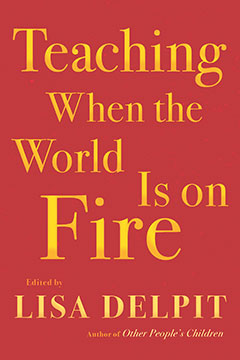
Teaching When the World Is On Fire
By Lisa Delpit
In this inspiring collection, Lisa Delpit gathers all-star advice on engaging students around today’s toughest issues—from understanding Black Lives Matter, to processing news coverage of sexual assault, to combating climate change. This energizing volume speaks to our contentious world and the necessary conversations we all must have about it.
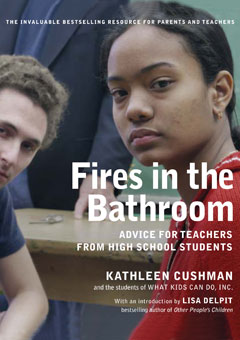
Fires in the Bathroom: Advice for Teachers from High School Students
By Kathleen Cushman
Kathleen Cushman’s groundbreaking book offers original insights into teaching teenagers in today’s hard-pressed urban high schools from the point of view of the students themselves. It speaks to both new and established teachers, giving them firsthand information about who their students are and what they need to succeed.
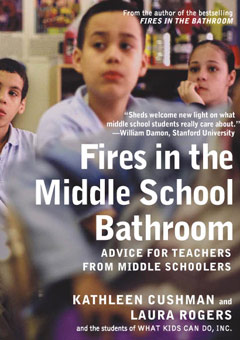
Fires in the Middle School Bathroom: Advice for Teachers from Middle Schoolers
By Kathleen Cushman and Laura Rogers
In this follow-up to Fires in the Bathroom, Kathleen Cushman turns her attention to the crucial and challenging middle grades, joining forces with adolescent psychologist Laura Rogers. Here, middle school students in grades 5 through 8 across the country and from diverse ethnic backgrounds offer insights on what it takes to make classrooms more effective and how to forge stronger relationships between young adolescents and adults.
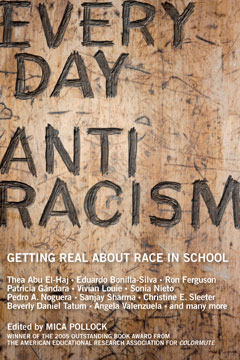
Everyday Antiracism: Getting Real About Race in School
Edited by Mica Pollock
In this groundbreaking book, leading experts offer concrete and realistic strategies to deal with the most challenging questions about race in schools. Following each of their profound and though-provoking essays, readers are prompted to examine and discuss everyday issues of race and opportunity in their own classrooms and schools.
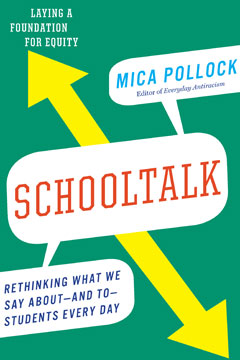
Schooltalk: Rethinking What We Say About—and to—Students Every Day
By Mica Pollock
Everything that is—and isn’t—communicated to and about students has serious implications for their success. In this essential guide to bringing equity to schools, Mica Pollock offers tools—common scenarios paired with useful exercises, concrete actions, and valuable resources—to help educators match their speech to their values.
